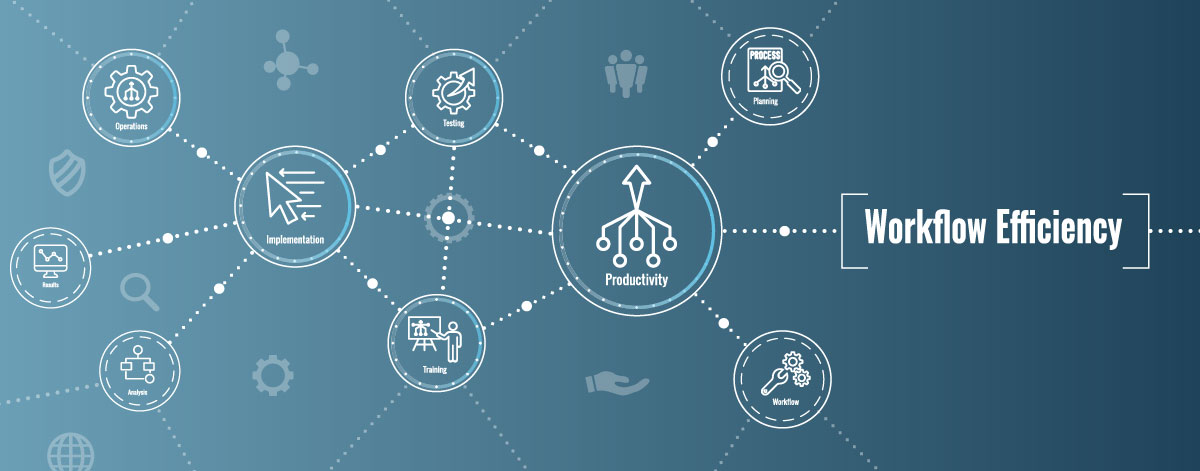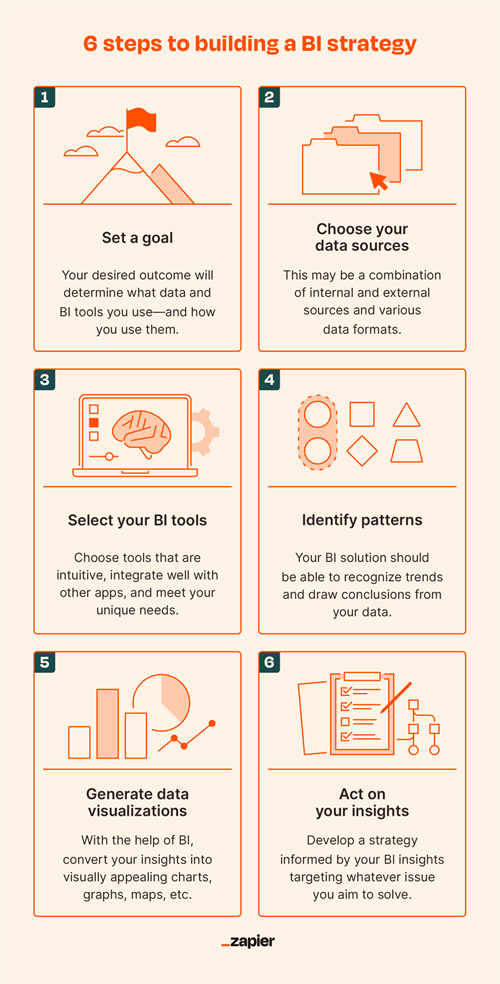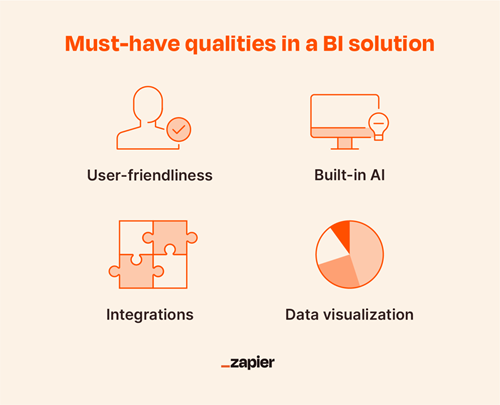Are you a busy business owner constantly juggling tasks and responsibilities…wishing there were more hours in the day? If the weight of numerous tasks keeps increasing, chances are, you are lacking well-established business systems. At Epic IT Automations, we believe in simplifying, streamlining, and creating systems to run your business so you can focus on what you are good at–growing your business. Read on to learn more about how to build a business system using effective and scalable strategies. Systems are the foundation of a successful, scalable business. A business system consists of a sequence of related activities or steps that detail the precise method for reaching a business goal. Whether facing challenges in bringing on new employees or strategizing for successful online marketing, implementing a robust business framework can turn your business processes into a seamless and effective operation.
In a brief overview, the main steps involved in developing business systems are:
- Determining the activities in your business
- Dissecting each activity into detailed steps
- Identifying ways to improve the system
- Testing the newly improved system for effectiveness
- Regularly reviewing and refining the system
 Defining Business Systems
Defining Business Systems
Scaling is about doing more with less, not more and more. With precisely designed business systems, you can scale your business to greater heights. Much like a roadmap, a business system guides every aspect of your business operations, from strategic management and marketing to customer support services and finances. The series of interconnected tasks or processes outline exactly how to do something in a business to achieve an objective. Simply put, building a business system requires creating a thorough and detailed blueprint of your business operations, including all tasks big or small.
The Structure of a Business System: Strategies, Processes, and Procedures
A strong business system is made up of three main components: strategies, processes, and procedures. Strategies are the plans that frame your business goals and the steps you need to take to accomplish them. For example, a marketing strategy may have steps built in for attracting leads and converting them into actual customers. Processes are the steps involved in executing these strategies. For example, a sales process may include receiving lead information from marketing, following up by placing a call, and setting an appointment. Procedures are the specific instructions or actions that need to be taken to ensure the sucessful completion of each task.
Business Systems and Business Success
There are many benefits to having good business systems in place, such as streamlined workloads, improved productivity, and greater overall results. With clearly defined and documented procedures, business tasks such as onboarding new employees and providing consistent customer service can be easily followed by everyone in the company. Business systems dramatically transform your operations and set your company on a prosperous path. Below are some of the benefits you can expect:
- Making every team member an expert: by creating a series of interconnected tasks or documented procedures outlining how to do something within your business, clarity and transparency turn every team member into an expert at their tasks. A well-defined business process can be given to any employee, existing or new, and they can start implementing it without extra training. It streamlines onboarding and enhances the quality of customer service as every employee knows precisely what and when to do it.
- Saving time and increasing efficiency: consolidate workloads and boost productivity. With documented procedures in place, your employees can work more efficiently, reducing the time spent on monotonous tasks and preventing mistakes that can occur due to a lack of direction. This saves valuable time that can be used to focus on business strategy and growth.
- Delivering consistent customer experiences: build trust and promote long-lasting relationships with your customers by having strong business systems in place—consistency is key to happy customers and business growth.
- Improving operations and business performance: With a clear idea of your operations provided by your business systems, you can easily recognize what is and isn’t working. This certainty allows you to easily improve operations and spot any possible problems before they expand. Being proactive in your business can significantly improve your overall performance.
Steps to Create a Strong Business System
This process is broken down into five manageable steps to help you create an efficient and expandable business system.
1. Determining the activities in your business: The first main step in the process of business system creation is identifying your daily tasks and operations that keep your business running. These tasks could include customer service, sales, and marketing, to financial management, HR and more. It’s important to understand your core activities as it allows you to focus on what really matters in your business.
2. Dissecting each activity into detailed steps: after identifying your daily tasks and operations, the next step is to break them down even further. This is an important part of the process because it allows you to understand the workflow from start to finish. At this time, you can spot potential bottlenecks or redundancies that could be slowing down productivy and growth. As W. Edwards Deming said, “If you can’t describe what you are doing as a process, you don’t know what you’re doing.” A good way to stay on track is to dissect each activity into four buckets: the process, tools needed/used, people involved, and strategies and techniques that encompass the activity.
3. Identifying ways to improve the system: Now that you’ve articulated your business activities into detailed steps, it’s time to take the next step in the process of how to create systems in business. This involves finding areas of your system that can be improved to make your business more efficient and profitable. Ask youself, are all steps necessary or can some be removed? Are these the best apps and tools for the job, and do we have the right people in charge of these activites? It’s about fine-tuning what you already have, and not about reinventing the wheel. You want your business to run like a well-oiled machine!
4. Testing the newly improved system for effectiveness: Continuous tracking allows you to spot possible issues early on and make any adjustments before they become bigger problems. It also enables you to discover opportunities for further enhancements and improvements. As Dr. Deming, a renowned expert in business development, once said, “A bad system will beat a good person every time.” This quote signifies the importance of having a robust system in place, and tracking and testing play a crucial role in ensuring the effectiveness and efficiency of your systems.
5. Regularly reviewing and refining the system: to ensure the effectiveness and efficiency of your system over time, you must evaluate and refine it. Reviewing your business systems involves tracking KPIs (key performance indicators), which may include things such as revenue growth, revenue per client, profit margin, client retention rate, and customer satisfaction, and gauging your performance against the goals and success factors you established. It’s also benecial to get feedback from the people who interact with the system on a daily basis—they can provide critical insights.
The Importance of a Strong Business System for Business Growth
Whether you are running a small or large business, having well-designed systems in place provides the necessary structure for consistent quality in your offerings and plays a big role in the growth and success of your business. Business systems are not stagnant; they are meant to adapt to new challenges and opportunities. With the right systems in place you can focus on what matters most…growing your business and successfully hitting your goals. For more information on business systems, or how to get started with strong business systems, contact us any time! epicitautomations.com | 608-508-5100 | info@epicitautomations.com














